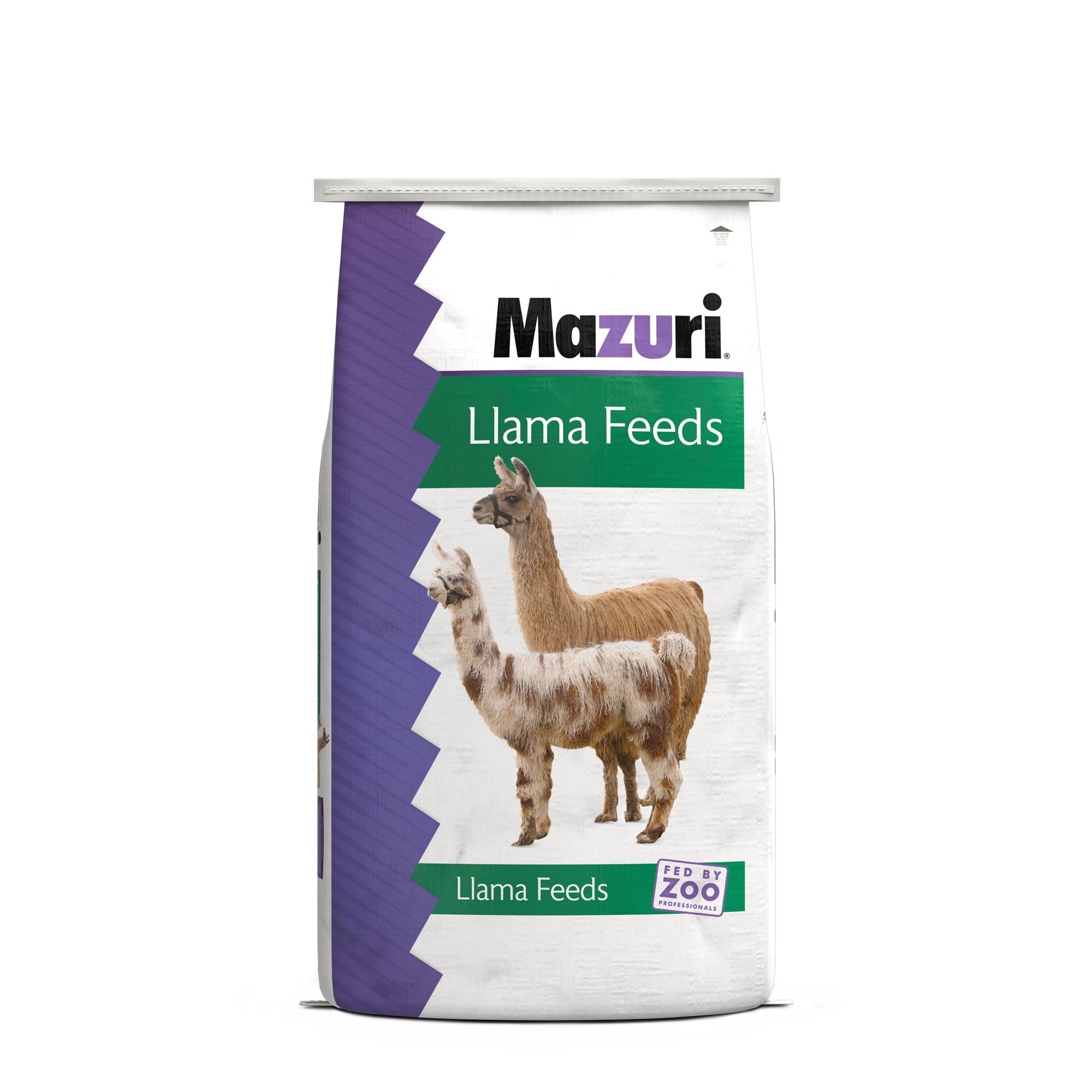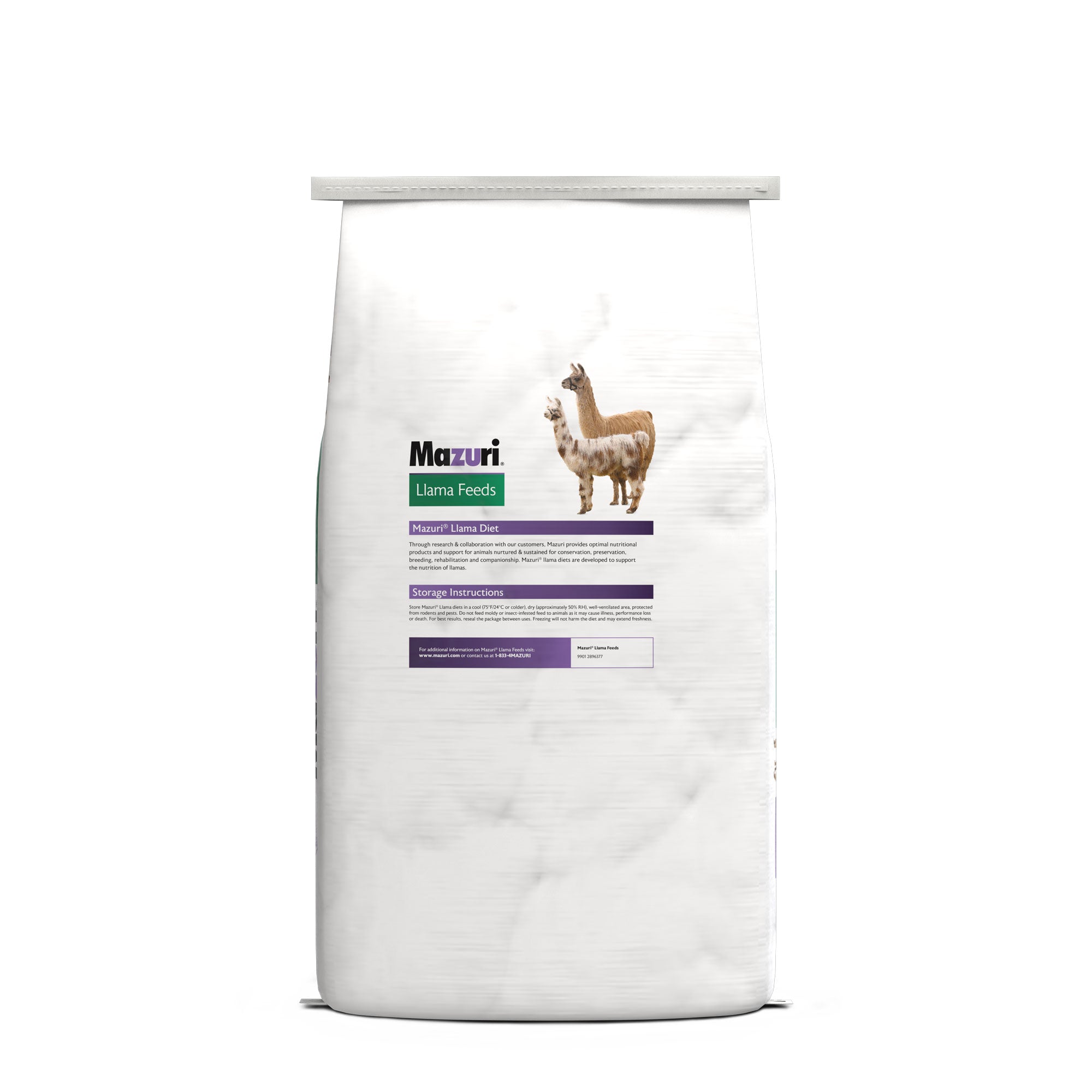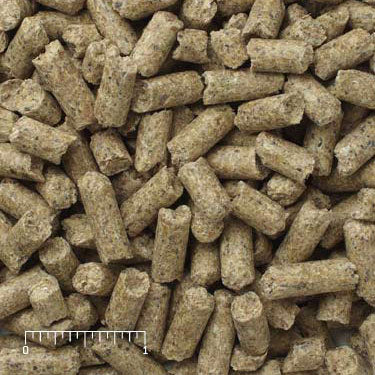Every exotic animal deserves the right nutrition
| Crude protein not less than Crude fat not less than Crude fiber not more than Ash not more than Calcium not less than Calcium not more than Phosphorus not less than Salt not less than Salt not more than Sodium not more than Selenium not less than Selenium not more than | 14.00% 2.00% 12.00% 12.00% 2.00% 2.50% 1.50% 0.50% 1.00% 0.55% 1.50 ppm 1.80 ppm |
Wheat Middlings, Ground Corn, Ground Soybean Hulls, Dehulled Soybean Meal, Dicalcium Phosphate, Calcium Carbonate, Dehydrated Alfalfa Meal, Cane Molasses, Soybean Oil, Salt, Thiamine Mononitrate, DL-Methionine, Zinc Sulfate, Cholecalciferol (Vitamin D3), Magnesium Oxide, D-Alpha Tocopheryl Acetate (Vitamin E), DL-Alpha Tocopheryl Acetate (Vitamin E), Manganous Oxide, Vitamin A Acetate, Zinc Methionine Complex, Preserved with Mixed Tocopherols, Copper Sulfate, Magnesium Sulfate, Potassium Sulfate, Citric Acid (a Preservative), Ferrous Sulfate, Biotin, Cobalt Carbonate, Sodium Selenite, Rosemary Extract.
- To be fed with free-choice hay. In order to meet NRC recommendations for new world camelids:
- Animals being fed hay should consume this product at a rate of 0.5% of body weight (BW) or more.
- Animals on fresh pasture should consume this product at a rate of 0.25 – 0.33% of BW or more.
- Daily supplement amounts:
- Pregnant females in good condition, 0.25 – 0.34 lbs. feed per 100 lbs. of animal BW.
- Active or growing males, 0.13 – 0.25 lbs. feed per 100 lbs. of animal BW.
- Older females or animals under stress, 0.34 – 0.50 lbs. feed per 100 lbs. of animal BW.
- Crias 3 – 18 months, 0.24 – 0.34 lbs. feed per 100 lbs. of animal BW.
- Overweight animals, 0.12 lbs. feed per 100 lbs. of animal BW.
- Always provide plenty of fresh, clean water and a salt-free water choice.
- Thoroughly wash feed and water bowls on a regular basis. It is always good practice to wash hands thoroughly after feeding and/or handling animals.
- This diet is not for human consumption.
Caution: Contains added copper. Do not feed to sheep or other copper sensitive animals.
Follow label directions: Feeding added selenium at levels in excess of 0.3 ppm in total diet is prohibited.
Storage Conditions
For best results, reseal the bag between uses or store contents of open paper sack in container with sealing lid. Store in a cool (75⁰F/24⁰C or colder), dry (approximately 50% RH) location free from rodents and insects. Do not offer moldy or insect-infested feed to animals as it may result in illness, performance loss or death. Freezing will not harm the diet and may extend freshness. Use within 1 year of bag manufacturing or "Best if Used By" date.
Ask Our Experts
Get nutrition advice you can trust from experts who understand the unique nutritional needs and behaviors of your exotic animals.
Get Advice

